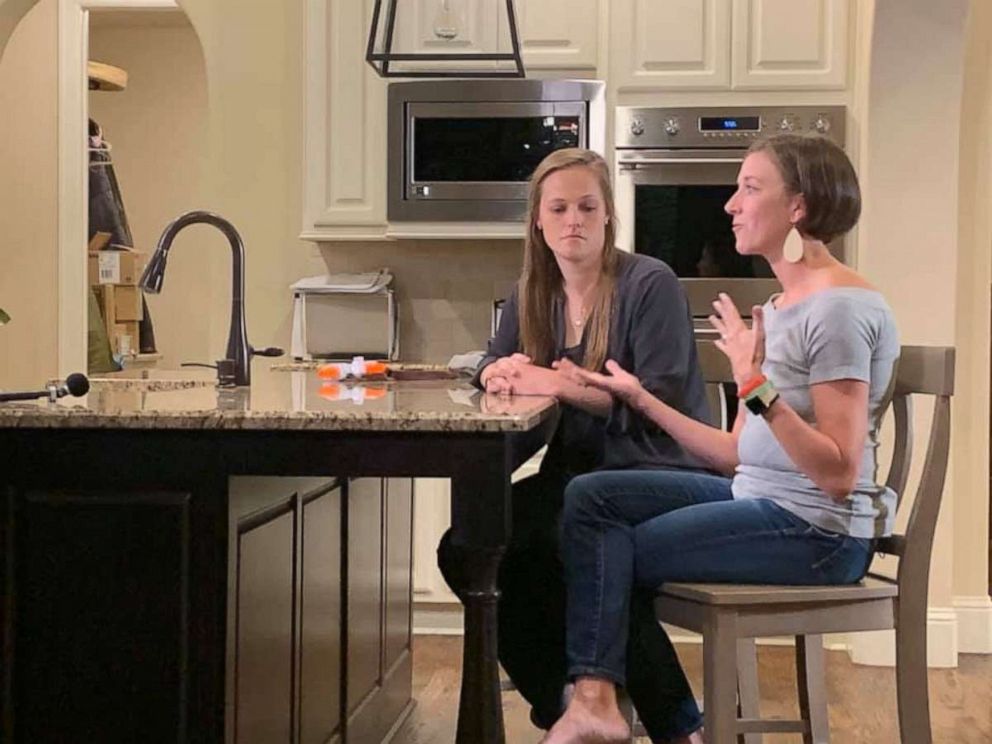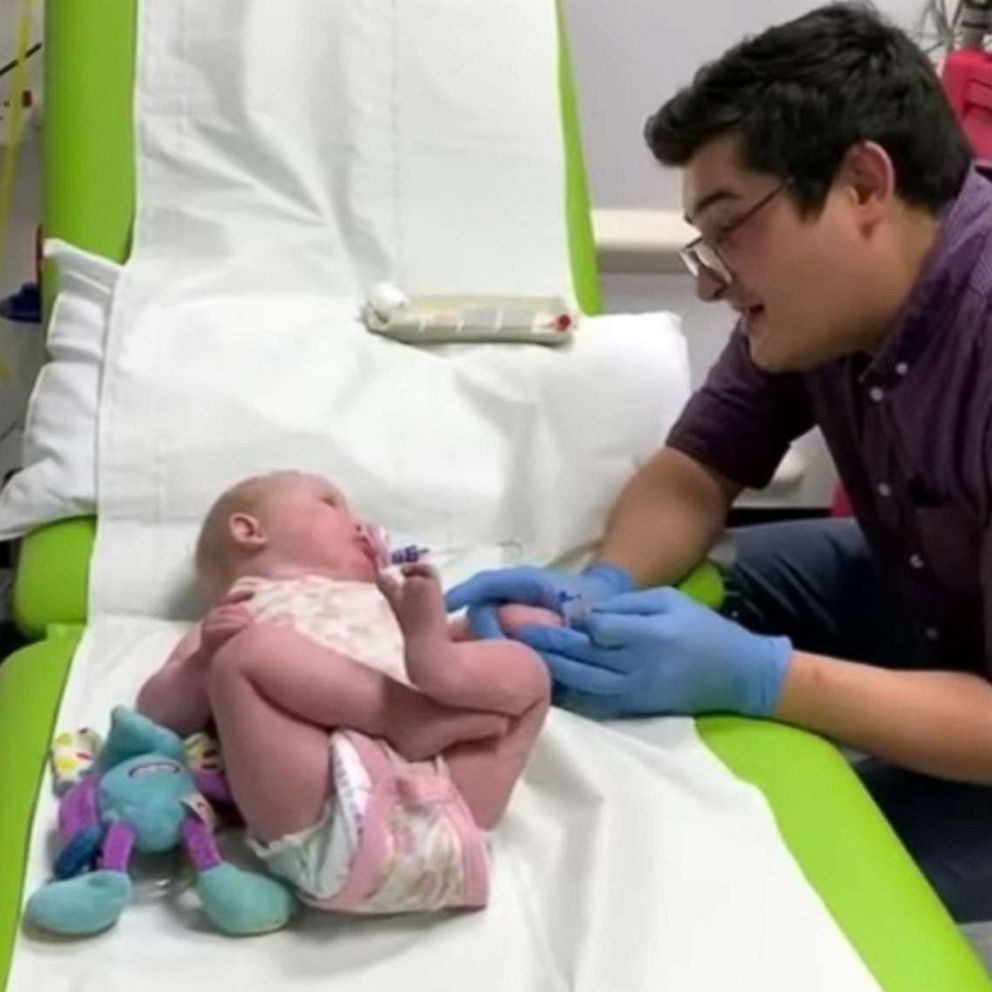Mom diagnoses son's rare illness after seeing stranger's posts on Facebook
Rachel Scott started posting on Facebook after her son was diagnosed with AFM.
A mom's mission to make other parents aware of a rare illness that afflicted her son is being credited by another mom with helping to save the life of her own child.
Rachel Scott, a mom of five in Texas, created a Facebook page, Team Braden Luke, in 2017 after her then 5-year-old son Braden was diagnosed with acute flaccid myelitis (AFM), a rare condition that affects the nervous system.
Braden got a cold and soon after was unable to swallow and had difficulty walking. He eventually stopped breathing and had to be intubated and flown to Houston, according to Scott.
It was in Houston, nearly one week after his first symptoms emerged, that Braden was diagnosed with AFM, a condition that affects the nervous system, specifically the area of the spinal cord called gray matter, which causes the muscles and reflexes in the body to become weak, according to the Centers for Disease Control and Prevention (CDC).
The condition has no known cause and it is not clear why a small number of people develop AFM [1 in a million children], while most others recover. But it has been linked in part to certain strains of enteroviruses. In the last five years more than 90% of patients with AFM had a mild respiratory illness or fever consistent with a viral infection before being diagnosed with AFM, according to the CDC.
"All parts of his spine were affected, he lost the ability to move everything except for some of his fingers on his left hand," Scott told "Good Morning America" of her son. "He's still fed through a tube because he still can't swallow."
Since Braden's diagnosis two years ago, Scott has shared his story on Facebook in hopes of raising awareness of AFM.
Her posts caught the attention of Elizabeth Cardone, a nurse in College Station, Texas, and a mother of two.
"I remember seeing this and just being struck in my core of this family and what a just horrific and tragic thing they were dealing with," Cardone told "GMA." "You go from a common cold to being on life support."

Last month, Cardone's 2-year-old son Corbin caught a cold and then showed signs of weakness, struggling to stand up in his crib.
"I sat him down next to the crib and I stood him up and he collapsed and I did it again and he collapsed again," Cardone recalled. "It probably was seconds before I connected the dots from a respiratory illness for over a week, now he was recovering from it and getting better but all of a sudden has this sudden-onset weakness."
"I immediately thought of Braden and I immediately thought of AFM," she said.
Cardone messaged Scott -- a stranger -- on Facebook to ask her what to do. On Scott's advice, she then spoke to Corbin's pediatrician about the possibility that he may have AFM.
Soon after, Corbin was diagnosed with AFM and immediately began treatment. Four days after losing the ability to walk, Corbin had recovered enough to walk again.
"He didn’t walk in [the hospital], we carried him in, unable to walk and very weak in his legs," said Cardone. "And two weeks later he ran out [of the hospital]."
Corbin's pediatrician, Dr. Daniel Ransom of Baylor Scott & White Health, compared AFM to a "forest fire" that can quickly attack a child's nervous system.
AFM can be hard for physicians to diagnose and there is no specific treatment for the condition, according to the CDC.
The average age of patients with AFM is 5 years old, with 233 cases of AFM across 41 states reported in 2018, according to CDC data.
Because AFM is hard to diagnose, Ransom said physicians need to listen to parents who know their child's health the best, as was the case with both Cardone and Scott.

"You don't jump to AFM when a kid can't walk," he said. "I've seen several really strange things and one of the key things, and I'm not being flippant about this, is listen to the mother."
For parents, Ransom tells them to "trust your instincts" when it comes to their kids' health.
"It's not necessarily a common cold that would lead you to think that something was wrong, it's the common cold, followed by sudden-onset weakness or paralysis," he said. "If you think something is wrong, don't be afraid to get medical attention, whether that's with a pediatrician, or if you have access to your pediatrician, to an office or emergency care."







